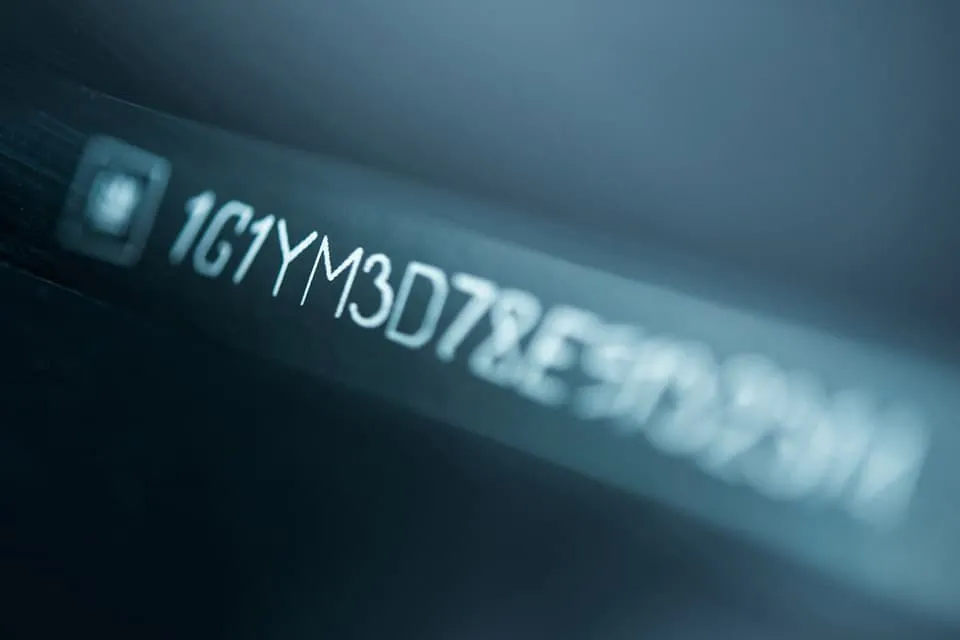How To Do a Vehicle Title Search

A vehicle title search is a way for car buyers to find out important facts about a vehicle's history. These reports can show you vehicle details like whether it has been regularly maintained, how often it's been repaired, and whether it's been in any major collisions.
Vehicle title search usually comb through millions of records and thousands of databases to retrieve information for their reports. With almost 300 million registered vehicles in the U.S., it's important to choose a service that can find accurate and up-to-date information quickly.
You can find the title number on your official vehicle title certificate. It's located near the top of the title document, though the exact placement varies by state. For example:
-
In California, you’ll find it in the upper right corner of the pink slip (the title).
-
In Texas, it’s near the top center of the blue title document.
Some states also include it in digital records, but it’s rarely shown on registration paperwork.
Why Should You Do a Car Title Search?
If you are a driver or just a car owner you may need to do a car title search when you're requesting a title change, transferring ownership, or selling the vehicle, especially if you want to offer a vehicle history report to give potential buyers confidence in the car's background. Performing a vehicle title search can help you find more information about a used car and make a more informed financial decision. A car title search can show you a complete history of your vehicle, including:
- Accident History
- Title Changes
- Ownership History
- Vehicle Recalls
- Whether the Airbags Have Ever Been Deployed
- If The Vehicle Has Been Tampered With
- Lien Information
- Flood Damage
- Repair Records
- Whether The Car Has Been Used In a Crime
If the dealership or private seller is providing information that differs from the vehicle title search, you may be at risk of being scammed. These dealers will usually hide facts about a car's history to raise the price or offload a vehicle that has been stolen.
To perform a vehicle title search, you'll need your VIN - not the title number. While it might seem like you could use the title number, there are very few, if any, public tools that allow you to search using it. Title numbers are state-specific and aren’t searchable through national databases like VINs are. In most cases, a title number alone won’t help you find the vehicle’s owner or uncover its history. That’s why the VIN is essential for running a reliable title search.
What Is a VIN?

Your vehicle's VIN, or vehicle identification number, is a way for licensing agencies and insurers to distinguish your car from every other registered vehicle on the road. It is a unique 17-character mixture of numbers and letters with each section of the sequence referencing a different information category. Just like a car title report, these information categories can give you a series of facts about your car. These categories include:
- World Manufacturer Identifier (WMI) The first three numbers of your VIN show who manufactured the car, and what volume of cars that manufacturer produced within your vehicle's year.
- Vehicle Descriptor Section: The next five numbers of the VIN identify the vehicle's type, model, and style.
- Vehicle Identifier Section: The next seven characters are used to help a manufacturer identify an individually registered vehicle.
- Check Digit: The next character is used to validate the VIN by checking it against the calculated value.
- Model Year: The 10th character shows the vehicle's model year.
- Plant Code: The next digit or letter indicates what factory assembled the vehicle.
- Manufacturer Identity: The manufacturer identity is similar to the plant code in that it helps determine who manufactured the vehicle.
- Sequential Number: The last six characters of a VIN show what production options are on the vehicle and help further identify its registration.
How to Do a Title Search on a Vehicle
As mentioned earlier, there's no need to search for the physical title itself just to check ownership - it already displays the current owner's name. However, if you're trying to uncover the vehicle’s history or verify its title status, you’ll need the VIN, not the title number.
Lost the title? Don’t worry. You can request a replacement through your state’s DMV. Many offer an online option where you submit your VIN, license plate number, and ID, pay a small fee, and receive a duplicate by mail within 5–15 business days.
Follow these three steps to perform a title search:
- Find Your VIN, either by retrieving it from your vehicle, finding it in your car's documentation, or getting it from an online service.
- Choose a Title Search Website, selecting either a government-provided service or one created by a third-party.
- Receive and Read Your Report after providing your information and choosing a service you trust.
How To Find Your VIN
To find your VIN within your vehicle you'll need to look on the driver's side dash or near the door latch. There you should find a small metal plate engraved with the 17 characters.
If you can't find your VIN in your vehicle, you can retrieve it from certain documents. These documents include:
- Vehicle Title
- Registration Card
- Owner's Manual
- Insurance Documents
If you don’t have access to your physical car or paperwork, you may still be able to find your VIN online using trusted websites that allow you to enter your license plate number and state to get the VIN number. If your car is enrolled in a manufacturer's app (like FordPass, MyChevrolet, Toyota app, etc.), you can often find the VIN listed under the vehicle info.

Choose a Car Title Search Website
You can conduct a vehicle title search online using either a government or third-party website, depending on your preference. The National Motor Vehicle Title Information System is one good way to get a vehicle's history through an easy-to-access online database. These searches are usually limited to certain states, so check what the availability for title searches in your state is before attempting to search.
It's also important to make sure that the website has a ".gov" in the URL. If they don't, or if a .gov website isn't available, make sure it's a third-party site that you can trust. Many of these car title search websites will require you to input sensitive information, so you'll need to be sure the website is legitimate. Do some research before you use a particular site and make sure you aren't at risk of being scammed.
Receive and Read Your Report
Once you've entered your information, you should receive your report. Unlike an information request from the Department of Motor Vehicles or another governmental agency, a vehicle title report should take only a couple of minutes maximum to conduct. Once you have your report, you should be provided with all the information you need to make a better car-buying decision.
Vehicle Title Search Frequently Asked Questions
Is a Vehicle Title Search Free?
No, vehicle title searches are usually not free. The cost for a vehicle title search varies depending on the state the vehicle is registered in and what website you use to conduct your search. These fees are not typically too significant, but can be higher depending on the service you choose. If you take time to research beforehand, you can often conduct title searches for a smaller fee with certain services.
Is a Vehicle Title Search Worth it?
Conducting a vehicle title search is usually worth the cost due to the wide range of information they provide. With access to data about the title, accident history, repair records, and ownership, you can do better background research on a vehicle before purchase. This allows you to avoid overpaying or being the victim of a scam.
Can I Search for a Vehicle's Title by Name?
Unfortunately only a law enforcement agency can look up a car's title with the owner's name. This is usually done when the car owner or the vehicle is involved in a criminal investigation. A vehicle's title contains sensitive information and usually requires a VIN or other identification documents to attain.
Can I Lookup My Car Title Online?
Yes, you can look up your car title using a variety of services online. If you want to use a government website, the National Motor Vehicle Title Information System can help you retrieve your car title for a small fee. There are also third-party websites that can help you conduct a car title search; these websites usually offer auxiliary searches that can help you find even more important data about your vehicle.
What Is a Car Title?
A vehicle title is a legal document indicating that you (or another party, if you have not purchased the car) are the legal owner of a vehicle. It is required to register the car with the Department of Motor Vehicles, and the seller is legally obligated to provide you one after the sale is finalized. It contains valuable information about your car like:
- VIN number: 17-character character sequence used to identify a car.
- Make, Model, and Year: Shows the manufacturer, product line, and year the car was constructed.
- License Plate Number: Number that shows your vehicle is legally registered in the state you reside within.
- Lienholder Information: Information pertaining to any liens placed against the vehicle.
- Technical Information: Contains details related to the vehicle's technical data, including purchase price, gross vehicle weight, and motor power.
- Name and Address: The full legal name and current address of the owner.
- Title Type: The vehicle's title type (e.g. a clean title, salvage title, rebuilt title etc.)
Where Can I Find Out More About A Car I Want to Buy?
Getting every detail you can about a vehicle before you consider purchasing it is an essential part of the car-buying process. Whether that means conducting a vehicle title search, using a VIN lookup search, or finding a license plate number, these details can be the difference between overpaying and getting a great value on a vehicle.
If you want to find information fast, you'll need a high-quality vehicle history search tool. These tools can provide you with all the available data on a car; that way you can check to see if the dealer is being honest about the vehicle's history and assigning a fair price.
FREE Vehicle Search
- Accidents
- Problem Checks
- Title Records
- Recalls
- Values
- Specs
-
InfoPay, Inc. (dba GoodCar) is an Approved NMVTIS Data Provider
-
-






























